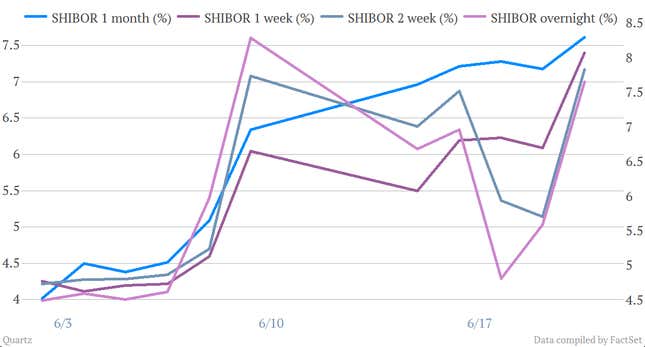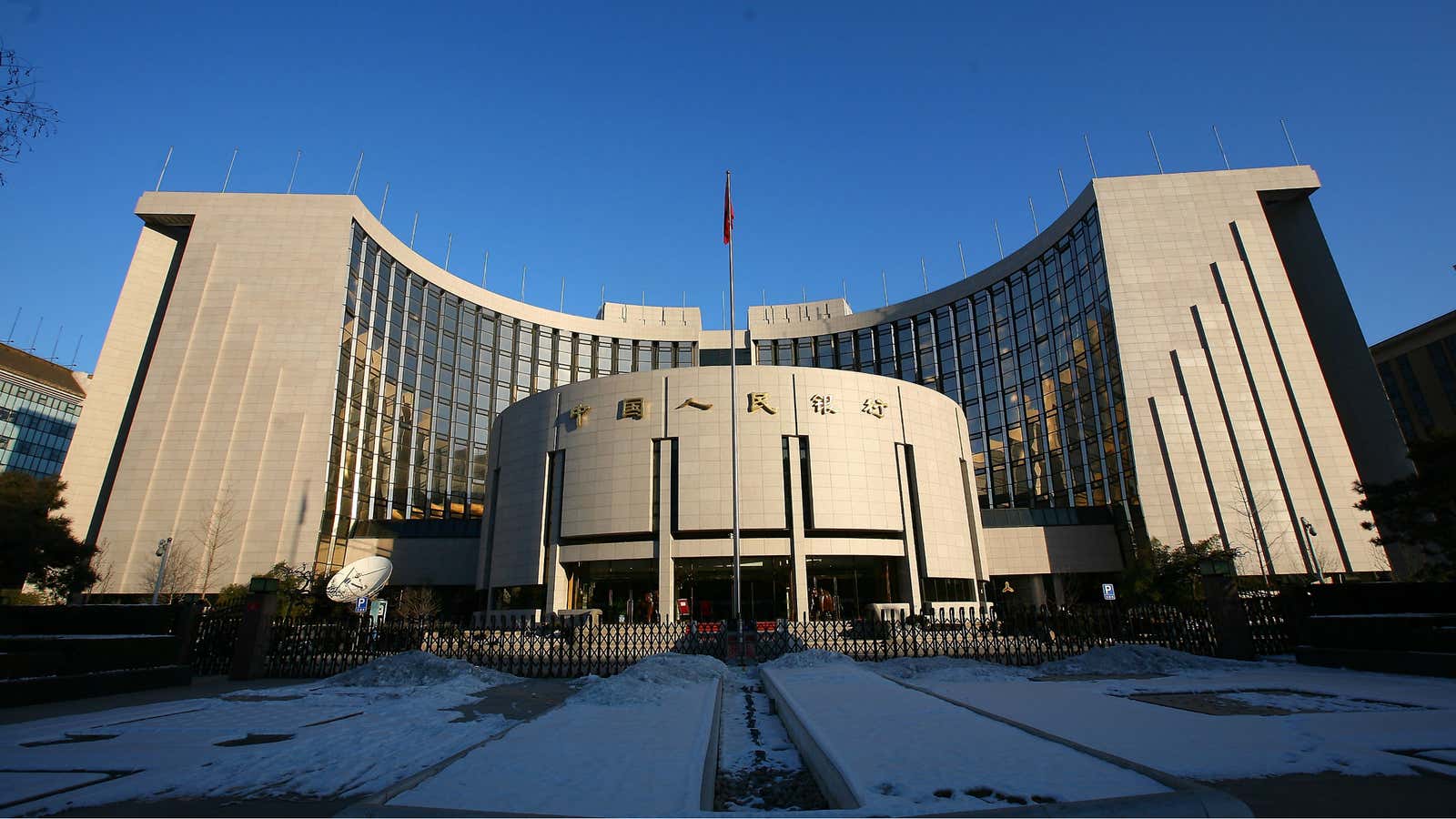China’s banks and regulators are in a game of chicken over how to address the country’s cash crunch.
China’s central bank removed 2 billion yuan ($326 million) from the money market today, mostly to punish the country’s banks for their shady lending. As a result, banks held onto more of their cash, which sent the two-week and overnight interbank lending rates up 212 and 206 basis points, respectively. Meanwhile, the one-month rate surpassed 7.6%, territory it hasn’t seen since January 2012. To sum that up: Chinese banks think lending to each other for 24 hours is riskier than Portugal’s chance of default on a 10-year bond.

The State Council, which controls regulation, also announced today that authorities would “firmly guard against regional and systemic risks” in the financial system.
The move comes after many attempts by the central bank to rein in banks and local governments. First, the banking regulator cracked down on wealth management products (WMPs), the securitized off-balance-sheet loans sold retail investors, and interbank bond trading. Then the State Administration of Foreign Exchange, and arm of the People’s Bank of China, vowed to cut off capital inflows via faked trade invoicing, some of which ended up in high-yield schemes like WMPs. Earlier this year, the ministry of finance lent 350 billion yuan to local governments to make up for their budget shortfalls.
What’s really going on Zhongnanhai, where China’s government elite convenes, is anyone’s guess. But it appears that China’s central government is reclaiming control over local government finances. Meanwhile, other sources of liquidity may be drying up. Foreign direct investment rose just 0.3% in May versus the same month in 2012, after rising 20% in the first five months of the year.
It all adds up to major pain for even the country’s biggest banks. State-owned Agricultural Bank of China, one of the “big four” state-owned banks, just announced that it is raising funds to shore up its capital adequacy ratio (link in Chinese).
Premier Li Keqiang suggested in March that market reforms should involve some “wrist-cutting.” The bleeding has begun.
